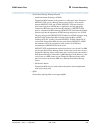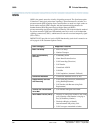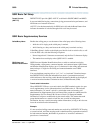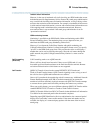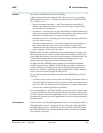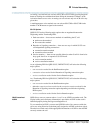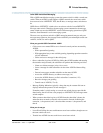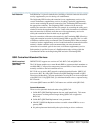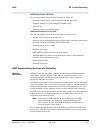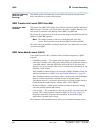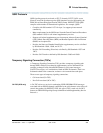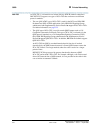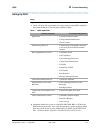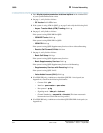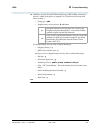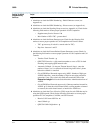
QSIG
367
Administration for Network Connectivity
555-233-504 — Issue 1 — April 2000 CID: 77730
B Private Networking
QSIG CAS functions in RLT-CAS
The following QSIG-CAS functions are currently in RLT-CAS:
• Attendant-seeking calls at a branch reach the attendant at the main
• Attendant splitting away and calling the extended to party
• Night Service
• Monitoring agents, per attendant group
QSIG CAS functions not in RLT CAS
The following QSIG-CAS functions are currently not in RLT-CAS:
• Announcements for attendant seeking calls
• Attendant calls enter the attendant queue, with priorities (calls that originate from
the branch do not have different priorities in the queue)
• Attendant display of user’s COR
• Attendant split/swap
• QSIG Path Replacement kicking in after the transfer
• Attendant Return Call (Release Loop Operation, returns to same attendant if
available. If not, then attendant group)
• Display Enhancements
• Attendant Conference
QSIG Supplementary Services with Rerouting
QSIG Path
Replacement
DEFINITY ECS provides QSIG Additional Network Feature Path Replacement
(ANF-PR) as defined in ISO/IEC 13863 and 13874. With this feature, a call’s
connections between switches in a private network can be replaced with new
connections while the call is active.
ANF-PR is invoked when a call is transferred and improvements may be made in the
routes. For example, after a call is transferred, the two parties on the transferred call
can be connected directly and the unnecessary trunks are dropped off the call. The
routing administered at the endpoints allows for a more efficient route connection.
ANF-PR selects the best route based on the preference assigned to routes in the Route
Pattern form. Least cost Supplementary Service B (SSB) routes must be first,
followed by more expensive routes.
Note: When routes to SSB trunks are included with routes to non-SSB
trunks, SSB trunks must appear first on the Route Pattern form.
This is because as soon as ANF-PR encounters a non-SSB trunk in
the route pattern, it stops looking.
Class of Restriction (COR) and Facility Restriction Levels (FRL) are adhered to in
routing calls. ANF-PR is not invoked on data calls because there is a period of time
when information can be lost.



